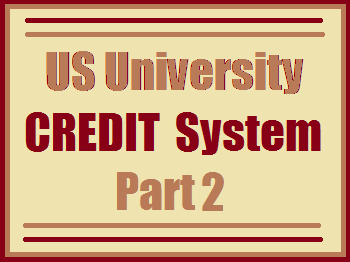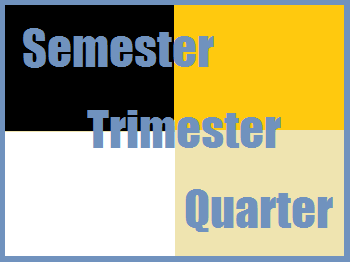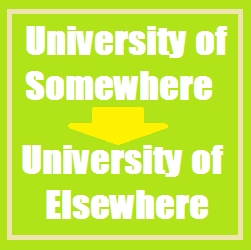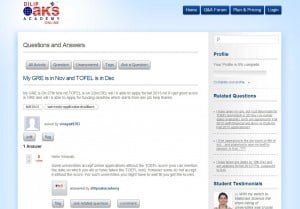 The statement of purpose is an extremely important part of your application packet (click here for an explanation). A well-written SOP that brings out the most important facts about you as a candidate for higher studies, can open the doors of opportunity for you. On the other hand an SOP that tries to impress but focuses on facts that the admissions committees consider irrelevant can lose you the opportunity that you have dreamed of.
The statement of purpose is an extremely important part of your application packet (click here for an explanation). A well-written SOP that brings out the most important facts about you as a candidate for higher studies, can open the doors of opportunity for you. On the other hand an SOP that tries to impress but focuses on facts that the admissions committees consider irrelevant can lose you the opportunity that you have dreamed of.
In the extract below Dr. Harchol-Balter, an Associate Professor of Computer Science at Carnegie-Mellon University points out two common mistakes that many applicants make:
• The grade regurgitator – “In my high school, I was ranked Number 1. Then I got a perfect score on my college entrance exams. Then I competed in a statewide math competition and I was the best. Then I competed in a national programming competition and I was 5th. In college, my GPA was 3.95 out of 4.0. For these reasons, I believe I will do well in your graduate department.”
What’s wrong with this? This portion of the essay is a waste of space. Awards are certainly relevant, however any award you won should be listed on a separate piece of paper which is titled “Awards and Honors” and which you can include with your application. There is no reason to tell us all this in your essay. It will only piss-off the people reviewing your application because they already read all this information earlier in your application and they now want to hear about research.
• The boy genius – “When I was born, my mother gave me a glass ball to play with. I would lay and look at the prisms of light shining through my ball. At age 3, my father brought home our first computer and I disassembled it and then put it back together. It was then that I knew I wanted to become a computer scientist. By age 5, I had taken apart every appliance in our house. At age 6, I became a chess whiz ….”
What’s wrong with this? We simply don’t care what you did as a child, and we don’t believe you either. You’d be surprised how many applications from Einstein-wanna-be’s we get. If you really think this is relevant, put the important facts on a separate sheet of paper, and include it in your application. It’s best if your essay can stick with stuff you did in college and later.
Related Blogs on Application Documents
Related
 Tomorrow morning (Indian Standard Time, and 8.00 p.m., Thursday evening Eastern Time) President Obama will announce executive action on immigration reform. Though this announcement is mostly going to affect illegal immigrants in the United States, there may also be implications for Indian students who have graduated with a master’s (MS) or doctoral (PhD) degree from American universities. They belong to the pool of highly skilled labor that American businesses need, so there is some anticipation of a positive fall out for them from this announcement. More specifically, the Indian student community in America will be waiting to hear whether the measures Obama announces will help make getting green cards and work permits easier and whether there will be an opening up on the H-1B visa quota front. Will they? Won’t they? It could mean dreams come true or anti-climaxes. Keep watching this space we’ll let you know.
Tomorrow morning (Indian Standard Time, and 8.00 p.m., Thursday evening Eastern Time) President Obama will announce executive action on immigration reform. Though this announcement is mostly going to affect illegal immigrants in the United States, there may also be implications for Indian students who have graduated with a master’s (MS) or doctoral (PhD) degree from American universities. They belong to the pool of highly skilled labor that American businesses need, so there is some anticipation of a positive fall out for them from this announcement. More specifically, the Indian student community in America will be waiting to hear whether the measures Obama announces will help make getting green cards and work permits easier and whether there will be an opening up on the H-1B visa quota front. Will they? Won’t they? It could mean dreams come true or anti-climaxes. Keep watching this space we’ll let you know.








 ask any questions you have regarding the application process for American universities
ask any questions you have regarding the application process for American universities